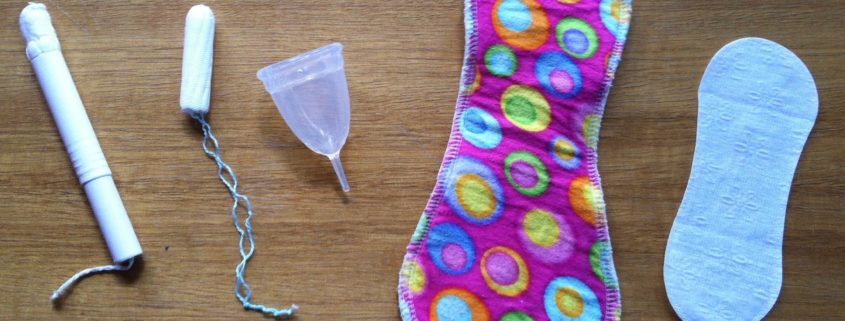Your First Postpartum Period: What to Expect
There are many things to love about pregnancy. Another is that you’ll have at least nine months of freedom from your period. But after you deliver, you’re probably curious about what will happen with your menstrual cycle. After its months-long hiatus, your postpartum period might return with a vengeance—or a whisper—and stay that way for years.
When your period returns often depend on whether or not you breastfeed. And just like your life after baby, you might find your periods after pregnancy is somewhat different.
When will my period return?
There are several factors that affect the return of your menstrual cycle, but most women will experience their first period between six to eight weeks after childbirth if you are not breastfeeding Approximately 80% of non-nursing mothers will have their period by the time they are 10 weeks postpartum. Those who practice exclusive breastfeeding might not have a period the entire time they breastfeed. “Exclusive breastfeeding” means that your baby is receiving only your breast milk. But for others, it might return after a couple of months, whether they’re breastfeeding or not.
If this is not your first pregnancy, keep in mind that every pregnancy is different. Even if your period returned exactly six weeks after the birth of your first child, this does not mean your menstrual cycle will return at the same point with your second pregnancy.
If your period does return quickly after giving birth and you had a vaginal delivery, your doctor might recommend that you avoid using tampons during your first menstruation post-baby. This is because your body is still healing, and tampons could potentially cause trauma. Ask your doctor if you can return to using tampons at your six-week postpartum checkup.
Breastfeeding and Your Menstrual Cycle
Typically, women who are breastfeeding don’t get their periods as quickly because of the body’s hormones. Prolactin, the hormone needed to produce breast milk, can suppress reproductive hormones. As a result, you don’t ovulate or release an egg for fertilization. Without this process, you most likely won’t menstruate.
In most cases, the rule of thumb is that it’s perfectly normal to wait up until six months after you’re finished breastfeeding for your menstrual cycle to return. If you haven’t gotten your first period at this time, your doctor may prescribe a medication to jump start menstruation and ovulation.
First Period after Pregnancy
Your first period after pregnancy is likely to be more painful than what you remember. Part of this is due to the hormonal changes in your body from pregnancy and part of it is just due to the fact you haven’t been menstruating for quite some time. Your cycle will likely return to a more normal rhythm within a few months, although you should feel free to contact your healthcare provider if you are concerned. Occasional spotting within the first three to six months after your menstrual cycle returns is normal and does not indicate a problem.
Women who had endometriosis before pregnancy might actually have lighter periods after giving birth. Light periods can also be caused by two rare conditions, Asherman syndrome and Sheehan syndrome. Asherman syndrome leads to scar tissue in the uterus. Sheehan syndrome is caused by damage to your pituitary gland, which may be the result of severe blood loss.
Another problem that women often have after pregnancy is adjusting to the use of tampons. This is because your body is still healing, and tampons could potentially cause trauma. Ask your doctor if you can return to using tampons at your six-week postpartum checkup.
What postpartum symptoms should I watch out for?
It’s important that you call a doctor if you experience any of the following symptoms:
- soaking through more than one pad every hour
- bleeding that’s accompanied by sudden and severe pain
- a sudden fever
- bleeding continuously for more than seven days
- Blood clots that are bigger than a softball
- foul-smelling discharge
- A severe headache
- Trouble breathing
- Pain while urinating
A return to your menstrual cycle is just one of the parts of recovery and returning to your pre-pregnancy body. In some, menstruation may be delayed due to the hormone increases associated with breastfeeding.
If anything seems out of the ordinary about your first period after pregnancy, contact your doctor. Excess bleeding or indications of infection are especially concerning for a new parent. Listen to your body and play it safe.
The information, including but not limited to, text, graphics, images and other material contained on this website are for informational purposes only. The purpose of this website is to promote broad consumer understanding and knowledge of various health topics. It is not intended to be a substitute for professional medical advice, diagnosis or treatment. Always seek the advice of your physician or another qualified healthcare provider with any questions you may have regarding a medical condition or treatment and before undertaking a new health care regimen, and never disregard professional medical advice or delay in seeking it because of something you have read on this website.




Leave a Reply
Want to join the discussion?Feel free to contribute!